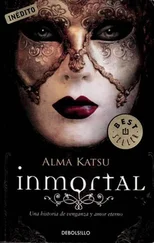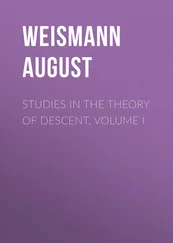I waited a few minutes before heading to bed. I didn’t want to run into any of them again tonight. It seemed fitting that I be alone, for that had been my choice, to leave Adair for Luke. Still, I’d been jarred by the sight of Robin and Terry; I don’t know why I hadn’t thought Adair would be with someone else by now, but it honestly hadn’t occurred to me, and I was left feeling unsettled. I climbed the massive staircase and padded by the closed door to their shared bedroom, their muffled voices rising and falling as I passed. I imagined they were talking about me. I started a fire in the tiny fireplace, changed quickly, and slipped into the chilly bed.
I was smothered by a sense of incredible melancholy. I should’ve known that talking about Luke would stir memories, bringing to the surface everything that I’d tucked away in the back of my mind. It was the first time I’d spoken about Luke’s death with someone who hadn’t been directly affected by it; namely: his children, Jolene and Winona; his ex-wife, Tricia, and her husband; and the doctors and nurses who’d worked with Luke at the clinic. Of all those people, I was the one who was least entitled to anyone’s condolences. Sure, Luke and I lived together as though we were husband and wife, but we’d been together for only a few years. I was practically a newcomer. Tricia had more of a claim on him than I, let alone his children. The sympathy belonged to them.
The first sign that something was wrong came when Luke collapsed at the clinic. He didn’t tell me until he got home that night. “I passed out today,” he said casually at the dinner table, not even looking up from his plate. “I woke up on the floor of my office. I don’t recall how I got there.” He tried to claim it was only light-headedness, because he hadn’t eaten lunch or because he was dehydrated, but after a few minutes of cross-examination he admitted that he’d been having headaches for days. I begged him to see a specialist, but being a man, and a doctor, he wouldn’t listen. I think it was because he had an idea of what was wrong and he didn’t want to have it confirmed.
I’ve been with a lot of people as they were dying and can attest: it’s not like it is in the movies. It’s not antiseptic or tidy. It is absolutely the lowest point in any person’s life. They’re either old and their body is starting to irrevocably fail, or they’re young but very sick or have had an accident. In either case, they’re afraid of what’s coming, afraid and confused. I’ve learned through experience that there’s nothing you can do for someone at the end except to try to keep them company so they don’t have to make that passage alone. No one wants to die alone; I’ve held the hand of many a dying man. That’s the price of immortality. It hasn’t meant that death is a stranger to me; if anything, we are reacquainted frequently at the deathbeds of others.
As a matter of fact, I’d been through the death of a close loved one so many times that, during those last weeks with Luke, I went into a kind of autopilot. I knew what was expected of me in those situations. The dying wanted unfailing support. Luke wanted me to be stoic in the face of his emotional ups and downs. He wanted me to be practical and logical, to be a rock at a time when his life was falling apart. He wanted me to be in the waiting room while he was undergoing tests. He didn’t want me to freak out when he suddenly couldn’t speak or use his right arm. He never had to ask for any of this; I just knew it was what he needed from me. He was too smart to worry that I would be unhinged by his passing; he knew I’d lost plenty of others before him.
It seemed that immortality—rather than make me more sensitive to the pain of losing a loved one—had robbed me of the ability to feel real emotion in the face of death. When my lovers and friends died, my feelings were always muted and distant. I’m not sure why this was. It might have been to protect me from being swamped by grief, so I wouldn’t relive the sadness I’d felt for each of the people I’d lost over the course of my life. Or maybe it was because I knew from experience that, soon enough, another person would come along and—if not take Luke’s place, not exactly—at least distract me from missing him. Because I had no choice but to live on and on.
Immortality had made me less human. Instead of giving me greater perspective on what it meant to be human, which you’d think would happen when you had such a long life, immortality had put me at a greater distance. No wonder Adair grew to be insensitive to the suffering of others: immortality forces you to become something other than human. I felt it happening to me, even though I didn’t like it. I came to see it was inevitable.
That night as I lay in bed, I thought back to one afternoon in the hospice. The doctors didn’t expect Luke to last more than a couple of days, and he was unconscious most of the time due to the morphine drip easing his pain. He wore a knitted cap for warmth as almost all his hair had fallen out from chemotherapy. What was left had turned shock white. He’d lost a lot of weight, too. His face was shrunken like an old man’s and his arms seemed too thin for the IV needles and the sensors that fed his vital signs to the monitors.
I’d taken to curling up in a lounge chair by the window, reading or knitting while he slept. I was grateful for the sedatives and painkillers making his last days more comfortable. After all, I’d sat with loved ones dying of tumors and tuberculosis with nothing stronger than Saint-John’s-wort and fortified wine to see them through it. The nurses, when they came in to check on him or change the drip bag, would invariably comment on my seeming calmness—backhanded compliments all; I think they thought I should be more upset, like Tricia and the girls. They couldn’t understand how I could be so detached. I’m sure they thought me cold-blooded. I wondered if Luke thought so, too.
This one afternoon, however, Luke was more lucid than usual. When I saw him shift restlessly in bed, I put down my book and went over to him. “How are you feeling?” I asked, taking his hand gingerly to avoid jarring the IV needle.
His eyes were feverishly bright. “I have a question for you. Are we alone?”
I looked through the open door toward the nurses’ station down the hall. They were engaged in their work. “Yes. What do you want to ask?”
He licked his lips. He seemed to be looking past me, as though he could no longer focus his eyes. “Lanny, I was wondering, now that I’m dying . . . if you had the power, would you make me like you?”
I hated that question. It wasn’t the kind of thing I would have expected from Luke, either. He’d always seemed too sensible, too down-to-earth. I tried not to miss a beat, however. “But I don’t have the power. You know that. . . .”
He was impatient with my evasiveness. “That’s not what I asked. I want to know if you would .”
I reached up to tuck a few loose white hairs under his cap. “Of course I would, if that’s what you wanted.”
He snorted and closed his eyes. “You’re just saying that.”
“Where is this coming from?” I asked, trying not to sound as tired as I felt. I knew why he was being peevish: he was afraid and exhausted. It was the end. It hovered in the darkness every time he closed his eyes. The waiting could bring out the worst in people.
His breath grew louder, ragged. “You know who could make me like you. Adair. He’d do it if you asked him.”
This time, I paused. Was Luke asking me to track down Adair and beg him to give me the elixir of life? It made me see Luke in a completely different light. Not only had I never suspected that he cared about living forever, I thought he would have sooner chosen death than ask me to go on his behalf to this man who frightened me so much. But death plays us cruelly at the end. “Is that what you want?” I asked, waiting.
Читать дальше












